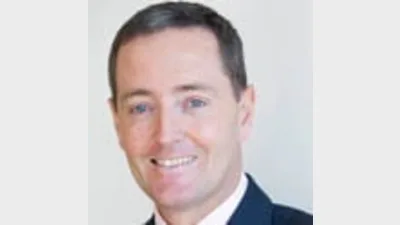FSP more valuable than education, Finsia survey finds



Financial services professionals have endorsed the Financial Services Institute of Australia’s (Finsia's) new work-based Financial Services Professional (FSP) credential over education-based programs as the way to improve industry standards.
A survey of Finsia members showed that when compared to postgraduate university degrees and other education-based qualifications, 83 per cent of respondents thought the FSP credential would add more value to the industry.
Finsia chief executive Dr Martin Fahy (pictured) said industry professionals believed that education-based credentials don’t drive professionalism and higher conduct standards like work-based credentials do.
“Education-based programs signal to the potential of a candidate, whereas professional qualifications signal to the candidate’s actual capability,” he said.
Through the work-based FSP program, Dr Fahy believed the “professionalism of the nation’s financial services sector will be enhanced along with the quality of services provided”.
He added that this would be achieved through learned behaviour, where industry norms were ingrained in candidates by more seasoned professionals.
The first enrolment will commence 1 February, 2011, with between 150 and 200 candidates expected to complete the course over the year.
Dr Fahy expected that a further 1,000 candidates will complete the program each year over the next five to 10 years.
Recommended for you
The top five licensees are demonstrating a “strong recovery” from losses in the first half of the year, and the gap is narrowing between their respective adviser numbers.
With many advisers preparing to retire or sell up, business advisory firm Business Health believes advisers need to take a proactive approach to informing their clients of succession plans.
Retirement commentators have flagged that almost a third of Australians over 50 are unprepared for the longevity of retirement and are falling behind APAC peers in their preparations and advice engagement.
As private markets continue to garner investor interest, Netwealth’s series of private market reports have revealed how much advisers and wealth managers are allocating, as well as a growing attraction to evergreen funds.











